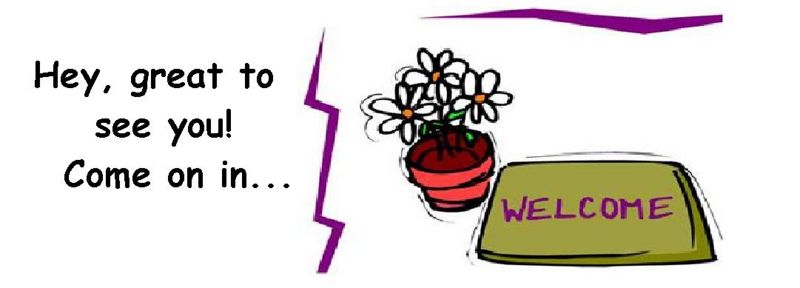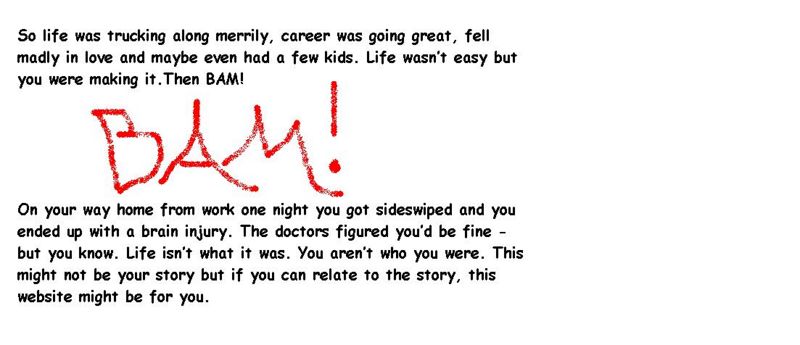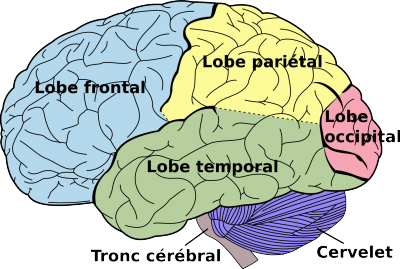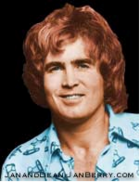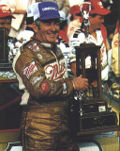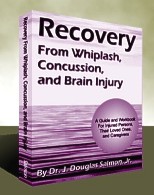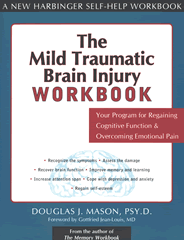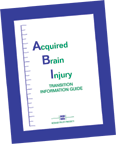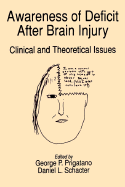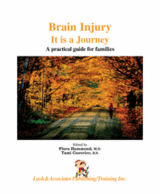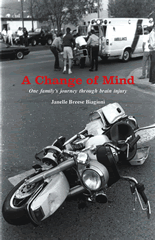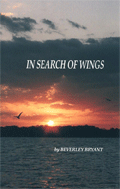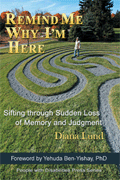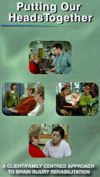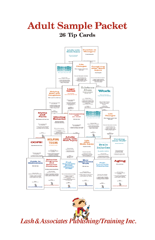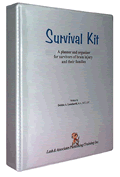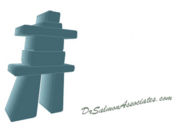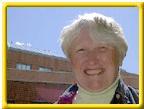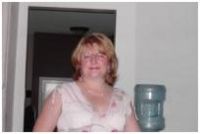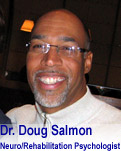TBIMVA
This site is an experimental school project, created by a student group. As of May 1, 2009, this site will no longer be maintained on a regular basis by the student group. For more information about this student group and this site, please refer to the About Us and Disclaimer sections. Thank you.
You aren’t alone. Many people have experienced brain injury and so will many more. You can help yourself get life on track by taking some action. Reading this website is a good start. Read about getting back to work, parenting, dealing with money problems, setting goals, and most importantly – how to reach out into your community and find the help you need. If you have information and connections and are willing to take action, you’ll be surprised what you can create.
- I look forward not to see what life brings you but what you can take from life.
- Share your story on our site under “Our Stories” sections
Try it. It’s easier than it looks. try me
If you want to come back to this page click on the left pointing arrow (the back arrow) at the top left of the page. If you would like to contribute your story or add to “strategies that worked for me” section, take the wikieducator tutorial. It will teach you how to add your information.
- Check out the red helpful hint signs and their captions throughout the site.
- You just might find them, well…helpful.
Contents
- 1 What is the nature of Traumatic Brain Injury?
- 2 What are the different ways to view TBI?
- 3 How do we understanding brain injury?
- 4 What are survivors of brain injury saying?
- 5 Are there any famous people with brain injuries?
- 6 Our stories
- 7 Articles, books and other materials you may want to check out
- 8 Where can you go to get more information and help?
- 9 Where can you meet people who know about brain injury?
- 10 Questions you may have in mind and answers you may be looking for
- 11 About Us
- 12 Thank You
- 13 Disclaimer
What is the nature of Traumatic Brain Injury?
What is Traumatic Brain Injury?
Traumatic Brain Injury (TBI) refers to damage(s) to the brain caused by a sudden trauma. TBI is essentially an acquired injury resulted from blow(s) to the head. When the head hits an object violently, the brain inside the head can suffer from bruising and when an object pierces through the skull it can shear brain tissue. Depending on the extent of the damage to the brain, symptoms of TBI can be categorized as mild, moderate, or severe. It should be noted that TBI, also commonly known as Acquired Brain Injury (ABI), is not used to describe those who are born with a brain injury or those who suffer from brain injuries that happened during birth. Answers4Fmailies.org, a partnership of the Nebraska Department of Health & Human Services and UNL's Center on Children, Families, and the Law, UNL Extension at the University of Nebraska (2009) indicated that: A person with a mild TBI may remain conscious or may experience a loss of consciousness for a few seconds or minutes. Other symptoms of mild TBI include headache, confusion, lightheadedness, dizziness, blurred vision or tired eyes, ringing in the ears, bad taste in the mouth, fatigue or lethargy, a change in sleep patterns, behavioral or mood changes, and trouble with memory, concentration, attention, or thinking. The term TBI is used for head injuries that can cause changes in one or more areas, such as: thinking and reasoning, understanding words, remembering things, paying attention, solving problems, thinking abstractly, talking, behaving, walking and other physical activities, seeing and/or hearing, and learning.
What does the brain looks like?
Symptoms of a brain injury depend on which part(s) of the brain is damaged. Below is a basic diagram of various parts of the brain.
Why is it important for you to know about Traumatic Brain Injury?
Brain injury has become a significant medical and societal concern within the last 30 years. With advances in medical technology, many people who would have died are now surviving severe brain injuries. At times the cost can be incredible: financially, socially and emotionally. (retrieved from the BIAC website: http://biac-aclc.ca/en/what-is-it/)
It is estimated that thousands of Canadians suffer from a traumatic brain injury each year; the majority being young adults. They will have a normal life expectancy but will require special care.
Brain injury affects a significant number of people each year and the numbers are reaching epidemic proportions.[1] Statistics indicate that the incidence of brain injury is two times greater in men.
Canadian Motor Vehicle Traffic Collision Statistics for 2003 indicates that there were 222,260 victims.
What are the effects of a brain injury?
The effects of a brain injury can be varied and unique as the individuals who sustain them. Since brain injuries occur in different areas of the brain with varying degrees of severity, no two people will be affected in the same way. An injury to the brain may affect a person in several ways including his personality, thinking, communication, or mobility. We cannot see many of the changes that a survivor of a brain injury experiences. It is often difficult for others to understand and accept changes in personality and thought processes, as these changes are not visible.
Some of the more common effects of a brain injury are changes in memory, concentration, response time, planning and problem solving, initiative, flexibility, insight, impulsivity, control of anger, talking, behavior, dependence, emotional stability, depression. Following a brain injury, the person may experience any number of these effects in varying degrees. Individuals working with a person with a brain injury will need to be particularly sensitive, observant and flexible.
Although each individual is unique, the sequels resulting from a brain injury often have similarities. Some of the sequels can include difficulty with memory loss, impaired reasoning skills, and tendency toward “one track thinking.” Many persons with brain injuries will also have physical disabilities. Some people experience varying degrees of speech impairment, cognitive impairments. Some people lose their sense of smell, suffer from headaches or have to cope with having seizures Emotional effects vary. The social consequences of a brain injury can be devastating.
Although the effects of brain injury may make it necessary for the injured person to have assistance for up to 24 hours in a day, families often remain or become the primary caregiver and support person. Many families are left to cope on their own, with little understanding of the effects of the injury and the demands of living with an injured family member. Families need support of others who understand the stress within these family systems.
Watch a video regarding Traumatic Brain Injury
This video Living with a Brain Injury (2007) is professionally produced to give good basic information about brain injury using a multi-perspectives approach. It explains brain injury from a biological, rehabilitation, and personal experince perspectives. It even touches on the reconstruction of self. It includes information about a variety of symptoms as well as strategies. You will hear stories of people who are rebuilding their lives and readjusting to family, careers and everyday life.
This program is sponsored by the Washington State Department of Social and Health Services/Aging and Disability Services Administration, University of Washington Traumatic Brain Injury Model System, and Harborview Medical Center.
The above video (29:11 minutes) began broadcasting on the Research Channel on March 11, 2008
<kaltura-widget kalturaid='4px2333sxw' size='L' align='C'/>
The video was retrieved from http://www.youtube.com/watch?v=FgtHvBF4t-E
What are the different ways to view TBI?
There are several ways we can talk about brain injury and those that experience brain injuries. Depending on our backgrounds we will approach the subject quite differently. Check out some of the discourses below to see the issue of brain injury from several different perspectives.
Cause, Manifestation, Diagnosis
Do you want to find out what's going on in your head?
How do the doctors know what's going on?
What kind of treatments are out there?
What's our outcome going to be? Can we be fixed?
Transport Canada is proposing that electronic stability control be required as standard equipment on all light-duty vehicles for sale in Canada, including passenger cars and many trucks and buses, that are built after September 2011. The agency suggests the technology could lead to 225 fewer deaths and 755 fewer serious injuries on the roads each year. (http://www.smartrisk.ca/news/all_cars_to_have_electronic_stability_control.html)
New research suggests driving while impaired – either by alcohol or drugs – continues to be a serious issue for Canadians. (http://www.smartrisk.ca/seasonal_tips/choices_help_you_party_and_drive_sober.html)
Is there a cure for Brain Injury?
What are some prognosis for Brain Injury?
How can Brain Injury being prevented?
How Does Life Look After Brain Injury?
Just as no two people are alike, no two brain injuries are alike. Appropriate treatment and rehabilitation will vary according to the needs of the individual. Programs and treatments change, as a person’s needs change. It is important to recognize that “more therapy” does not make a person “better”, but that “appropriate” therapy may. A person with a brain injury may transfer to different facilities throughout the recovery process. A rehabilitation program would generally look at the following components: cognitive, behavioral, vocational, educational, community re-entry and recreation. The active involvement of family members and friends throughout the rehabilitation process is a key component to achieve maximum success. Some province have a “continuum of services” where the person with a brain injury will go through the hospital, rehabilitation centre, back home and will then use the services of specific community programs. (http://biac-aclc.ca/en/what-is-it/)
What can one expect to happen?
What type of care can you expect to receive?
Are your emotions out of control?
What is stigma exactly?
"When someone appears to be different than us, we may view him or her in a negative stereotyped manner. People who have identities that society values negatively are said to be stigmatized" Mental Health Works
(Retrieved from http://www.mentalhealthworks.ca/facts/sheets/stigma.asp)
Most individuals find ways to live with their illnesses. What proves more challenging to them is living with how they are treated by others. This behaviour is also one of the key barriers which stops people from seeking help. Ultimately, it's stigma and discrimination that negatively affects their quality of life.
(Retrieved from: http://www.mentalhealthcommission.ca/English/Pages/AntiStigmaCampaign.aspx)
What is stigma like for you and others with a brain injury?
How do we understanding brain injury?
How do you know if your brain injury is affecting your thinking?
"Neuropsychological evaluation is often the best way to determine whether an injury/impairment to the brain has occurred, and if so, how it is actually affecting the person's thinking abilities" Dr. J. Douglas Salmon, Jr.
However, it should be noted that thinking, concentration and memory difficulties may also be casued by other factors even if no brain injury is invloved. These factors may include: sleep difficulties/fatigue, pain, dizziness, medications, anxiety, worry or stress, depression and physical illness.
What can you do about your problems?
Stick with these three principles!
1. Learn about and accept your problem areas.
2. Rely on your strengths to overcome your weakness and problems.
3. Get involved in activities that will help to improve those weak areas.
Try these strategies!
1. Determine the time(s) of the day in which the person is most alert and thinking at his/her best, and do the most mentally demanding activities during these times.
2. If necessary, rest or sleep for short periods (30-60 minutes) to increase prductive time in the later parts of the day.
3. Use relaxation or mediation techniques to help reduce stress and discomfort, to improve concentration, and to help sleep better.
4. Establish a light to moderate exercise regimen (consut with physician) which will help condition muscles, increase energy level, and help sleep better. Gradually increase exercise tolerance without pushing too hard.
5. Keep active by getting involved in hobbies, light chores around the hose, visitng people, doing volunteer work, reading, writing letters, or doing other things that will help the person keeps his/her mind off of his/her condiiton and prevent him/her from worrying.
6. Get involved in sports, hobbies, musical instruments, and activities that require hand-eye-foot co-ordination and skills. Practice is important despite lost of some skills. Don't be discourage, and if the person becomes too frustrated with an activity, by engaging in a new or simpler one, the person would less likely to look back and be critical of his/herself.
7. Establish a regular time for sleeping and waking up; avoid prolonged use of sleep medication.
8. Minimize use of pain medication by seeking other aids, such as massage, heat, cold packs or rest, and focusing attention on enjoyable activities.
9. Deal with feelings (don't bottle up), by talking or writing about them in a daily journal, poem or song.
10. Eat nutritious, well-balanced meals.
11. Minimize alcohol intake, as alcohol will likely have an impact on the person now than it did before the brain injury. Condult with neurologist/neurosurgeon to see if the person may consume alcohol at all.
12. Educate about the person's condition by asking specialist and family doctor questions and by reading educational materials.
13. If feeling that it would be helpful, speak with family doctor about a referral to a mental health professional for counselling.
Retrieved from: Neuropsychological Evaluation Summary & Rehabilitation Strategies Series, J. Douglas Salmon and Multi-Health Systems Inc. (1999).
What are survivors of brain injury saying?
• Courage is what it takes to keep going after a brain injury.
• Treat us with dignity, respect and love in spite of our challenges.
• Get to know us as a person and learn to communicate with us.
• Find out what motivate and keep us going.
• We need your encouragement to do our best.
• Positive feedback is far better than patronization.
• We need to take a risk sometimes.
• It is difficult for our old friends to “handle” the injury and it is hard for us to make new friends.
(retreived from the BIAC website: http://biac-aclc.ca/en/what-is-it/)
Are there any famous people with brain injuries?
Jan Berry
From April 3, 1941 to March 26, 2004
Jan Berry of the 1950’s and 60’s rock and roll duo Jan and Dean crashed his corvette April 12, 1966 not far from the famous Deadman’s Curve in Los Angeles. He suffered severe brain injury, partial paralysis and a long and very public road to recovery. Jan had minimal use of his right arm, and had to learn to write with his left hand. Doctors said he would never walk again, but he refused to give up, and ultimately succeeded. Jan returned to the studio in April 1967, one year to the month after his accident. Working with collaborators, he began writing and producing music again.
Retrieved from: http://en.wikipedia.org/wiki/Jan_Berry
Gary Busey
Born June 29, 1944
An Academy Award and Golden Globe Award nominated American film and stage actor and musician, who was involved in a near fatal motorcycle accident on Dec. 4, 1988, in which he was not wearing a helmet. His skull was fractured and doctors feared he suffered permanent brain damage. He was also severly injured.
No one expected him to live but only ten weeks later he walked out of the hospital of his own accord. He now works as an advocate for traumatic injury treatment and prevention.
retrieved from http://en.wikipedia.org/wiki/Gary_Busey
Bobby Allison
The date was June 19, 1988. Bobby Allison was driving 130 miles per hour in the first lap at the Pocono International Raceway in the mountains of Long Pond, Pennsylvania. Jocko Maggiacomo’s #63 Chevy smashed into his driver-side door going around 150 miles per hour. In racing, it’s called a T-bone, a broadside collision.Bobby was pulled from the wreckage and airlifted unconscious to the Lehigh Valley Hospital Center in Allentown. He had suffered a serious head injury, broken leg and thighbone and fractured ribs and shoulder. Doctors performed emergency brain surgery to relieve pressure inside his skull. His legendary racing career was over. For the full story click here http://www.thesurvivorsclub.org/stories/bobby-allison.html
Our stories
Individuals with ABI
Daniel Windheim's story - 2007-06-21
Adam's story
http://www.tbihome.org/stories/adam.htm
Amybeth's story
http://www.tbihome.org/members/amybeth_s/
My husband suffered a "ping-pong" fracture of the skull due to a head-on collision with a drunk driver. It affected his speech, his gentle personality and worse, the damage to the pituitary stopped the production of hormones leaving him with osteoporosis, causing him to have to take testosterone injections monthly, which in turn causes him to produce too much red blood cells which in turn causes him to have to have his blood tested regularly and have his blood drawn to reverse the condition. Not one of his neurosurgeons ever even mentioned the problems he would face. Needless to say on the outside he probably looks full recovered but on the inside, even after five years, we learn about a new problem everyday. I'm very thankful to have him with me and even more thankful to know a God who has everything under control.
Marilyn Boren, Paris, TX (Tuesday, July 29, 2008 1:12 PM)
Articles, books and other materials you may want to check out
Articles
Brain Injury: Proving a Lifetime Disability by Richard Alexander
http://www.consumerlawpage.com/article/trabrain.shtml
The Impact of Mild Brain Injury on the Family Unit by Carolyn Rocchio
http://www.lapublishing.com/article.asp_Q_product_id_E_impact%20of%20mild%20brain%20injury
A series links to Brain Injury related articles through the Northeast Centre for Special Care, Lake Katrine, NY
http://www.northeastcenter.com/links_brain_injury_articles.htm
Books
Recovery - From Whiplash, Concussion, and Brain Injury
- A guide and workbook for injured persons, their loved ones, and caregivers
Dr. J. Douglas Salmon, Jr. (2003), a publication of Rehabilitation Research, Education, and Evaluation Services (RREES) Inc.
A Guide and Workbook for Injured Persons, Their Caregivers, and Their Loved Ones. An illustrated 275-page comprehensive easy to read book covering all aspects of recovery, including physical, cognitive, and emotional issues, with chapters on headache, pain, and sleep management and guides to managing PSTD, depression, motivational/personality barriers, work issues, and more. 14 hands-on exercises also complement treatment by helping to discover factors that may be facilitating or hindering recovery, and by providing tools to help manage memory problems, and to efficiently organize and plan time and projects. This comprehensive, easy to read, illustrated 275-page book covers all aspects of recovery, from the physical to the mental to the emotional challenges and adjustments that the injured person is facing. The reader will learn about: the actual mechanics of whiplash, head, and brain injuries; the professionals who can help; how to manage back and neck pain, headaches, and dizziness; how to manage concentration, memory, and organizational problems; overcoming depression, post-traumatic stress disorder, stress, anger, poor sleep, and relationship problems; how to involve friends and family in positive ways; overcoming the challenges of returning to work; and, many other coping tips and strategies for a successful recovery. This book will help the reader take an educated and active approach to recovery, and demonstrate how this change can be both positive and life affirming.
http://www.rrees.com/recoverybook.html
The Mild Traumatic Brain Injury Workbook: Your Program for Regaining Cognitive Function & Overcoming Emotional Pain
Douglas J. Mason (2004), published by New Harbinger Publications.
The book addresses the emotional issues that often accompany MTBI, especially anxiety and depression. Readers learn basic self-help strategies to counteract problems that may be caused by the injury. The later chapters discuss the four major domains of cognitive function and ways in which individuals can challenge their limitations and repair specific brain functions. The book concludes with an exploration of the various potential long-term affects of MTBI and the outside resources available to assist readers.
Retrieved from http://www.amazon.com/Mild-Traumatic-Brain-Injury-Workbook/dp/1572243619
Acquired Brain Injury Transition Information Guide
This ABI Transition Information Guide is designed to provide information to persons with an acquired brain injury, caregivers and family members about what to expect at the next program.
Downloadable documents available in PDF format: http://www.abinetwork.ca/abitransitionguide.htm
Awareness of Deficit After Brain Injury: Clinical and Theoretical Issues
Edited by George P. Prigatano and Daniel L. Schacter (1991), published by Oxford University Press.
"Multidisciplinary perspectives on the problem of awareness of deficits following brain injury. Such deficits may involve perception, attention, memory, language, or motor functions, and they can seriously disrupt an individual's ability to function. However, some brain-damaged patients are entirely unaware of the existence or severity of their deficits, even when they are easily noticed by others. In addressing these topics, contributors cover the entire range of neuropsychological syndromes in which problems with awareness of deficit are observed: hemiplegia and hemianopia, amnesia, aphasia, traumatic head injury, dementia, and others. On the clinical side, leading researchers delineate the implications of awareness of deficits for rehabilitation and patient management, and the role of defense mechanisms such as denial. Theoretical discussions focus on the importance of awareness disturbances for better understanding such cognitive processes as attention, consciousness, and monitoring"
Retrieved from http://www.amazon.com/Awareness-Deficit-after-Brain-Injury/dp/0195059417
Brain Injury: It is a Journey
Flora Hammond and Tami Guerrier (2006), published by Lash & Associates Publishing/Training Inc.
This practical user friendly manual helps families understand the consequences of brain injury. By explaining medical terms in clear language, readers will understand the various types of brain injury and the rehabilitation process.
Retrieved from http://www.lapublishing.com/contents.asp_Q_product_id_E_BIFJ
A Change of Mind: One Family's Journey Through Brain Injury
Janelle Breese Bagioni (2004), published by Lash & Associates Publishing/Training Inc.
A very personal view of marriage and parenting by a wife with two young children as she was thrust into the complex and confusing world of brain injury. Her husband, a constable in the Royal Canadian Mounted Police was injured in a motorcycle crash while on duty.
Retrieved from http://www.lapublishing.com/detail.asp_Q_product_id_E_ACHM
In Search of Wings: A Journey Back from Traumatic Brain Injury
Beverley Bryant (1992), published by Wings Publishing.
The true story of one woman coping with traumatic brain injury after a car accident that affected her cognitive skills and memory. Her determination to conquer her deficits in order to regain total independence stands as an inspiration to all survivors in their long trek back from disability.
Retrieved from http://www.amazon.com/Search-Wings-Journey-Traumatic-Injury/dp/1882332008
Remind Me Why I'm Here:
Diana Lund (2006), published by iUniverse Inc.
A top-ranked project manager in her mid-thirties when a car accident instantly changed her personality and her life’s direction. Thrust into short-term memory loss and cognitive deficit, self-perception kept colliding into reality. Neurologists underestimated her difficulties; they sent her back to work, to manage multi-million dollar contracts, in a mentally compromised state.
Retrieved from http://www.amazon.com/Remind-Me-Why-Here-Disabilities/dp/0595383513
Other Materials
Putting Our Heads Together - A Client/Family Approach to Brain Injury Rehabilitation
A complete package includes:
1 educational video, 1 facilitator's manual, and 12 participant workbooks
After three years of planning the Toronto Acquired Brain Injury Network has developed an educational package for service providers.
Key themes of client-family centred care are illustrated through vignettes and interviews with clients and family members.
http://www.abinetwork.ca/downloads/orderform.pdf
Brain Injury Adult Sample Packet
Checklists and suggestions for what to do. All are written in clear language for families, educators and advocates, as well as clinicians, available from Lash & Associates Publishing/Training Inc.
http://www.lapublishing.com/detail.asp_Q_product_id_E_SAMPA
Survival Kit, A Planner and Organizer for Survivors of Brain Injury
Debbie Leonhardt (2002), published by Lash & Associates Publishing/Training Inc.
A 212-page kit was designed for persons with brain injuries or other disorders affecting memory, planning and organizational skills. It can be used independently by individuals, with assistance from families or caregivers, or as part of a rehabilitation treatment program.
Retrieved from http://www.lapublishing.com/contents.asp_Q_product_id_E_SKIT
Where can you go to get more information and help?
Alberta
Alberta Brain Injury Helpline
The Northern Alberta Brain Injury Society
301, 10106 -111 Avenue, Edmonton, Alberta T5G 0B4
Phone: 474-5678 (Local) Toll Free: 1-877-474-5678
Website: http://www.abihelp.org
Alberta Brain Injury Initiative Survival Guide
Brain Injury Message Phone Line: (780) 415-2747
Post Office Box 476,Edmonton, Alberta T5J 2K1 Email: braininjury@gov.ab.ca
Website: http://www.seniors.gov.ab.ca/css/bii/
Brain Injury Association of Alberta
4916-50 Street, Red Deer, Alberta T4N 1X7
Phone: (403) 309-0866 or 1-888-533-5355 in Alberta or NWT Fax: (403) 342-3880 E-mail: admin@biaa.ca
Website: http://www.Biaa.ab.ca/
Southern Alberta Brain Injury Interest Society (SABIS)
137, 2723 - 37 Avenue North East, Calgary, Alberta T1Y 5R8
Phone: (403) 521-5212 or Toll Free: 1-866-527-2247 Fax: (403) 283-5867 Email: sabis@sabis.ab.ca
British Columbia
BC Brain Injury Association
218 Sixth Street, New Westminster, British Columbia V3L 3A2
Phone: 1-800-510-3221 or (604) 520-3221 Fax: (604) 520-3206 Local Vancouver Phone: (604) 465-1783 Fax: (604) 465-1725 Outside Greater Vancouver: 1-877-858-1788
PO Box 2324, Chilliwack, British Columbia V2R 1A7
Website: http://www.bcbraininjuryassociation.com/index.php
Vancouver Island Head Injury Society
651 Queens Avenue, Victoria, British Columbia V8T 1L9
Phone: (250) 598-9339 Fax: (250) 598-9363
Website: http://www.biasvi.org/
Ontario
New Beginnings Club and Brain Injury Association of Chatham-Kent (BIACK)
9 Maple Leaf Dr., Chatham, Ontario N7M 6H2
Phone: (519) 351-0297 Fax: (519) 351-7600 Email: biack@biack.com
Website: http://www.biack.com
The Brain Injury Association of Niagara
111 Church Street, St. Catharines, Ontario L2R 3C9
Phone: (905) 984-5058 Fax: (905) 984-5354
Website: http://www.niagara.com/bian
Brain Injury Association Sudbury & District
A Haig Street, Sudbury, Ontario P3C 5P8
Phone: (705) 670-0200 Fax: (705) 670-1462 Email: info@biasd.com
Website: http://www.biasd.com
Brain Injury Society of Toronto
Box 49999, 660 Eglinton Avenue East, Toronto, Ontario M4G 4G1
Phone: (416) 830-1485 Email: info@bist.ca
Website: http://www.bist.ca
Community Head Injury Resource Services (CHIRS)
62 Finch Avenue West, Toronto, Ontario M2N 7G1
Phone: (416) 240-8000 Fax: (416) 240-1149 Email: Chirs@chirs.com
Website: http://www.chirs.com
COTA Health ABI Adult Day Services
Providence Healthcare 3276 St. Clair Avenue East, Room D327 Scarborough, Ontario M1L 1W1
Phone: (416) 755-2239 Email: abiads@cotahealth.ca
Website: http://www.cotahealth.ca/content.php?doc=245
Dr. J. Douglas Salmon Jr. & Associates, Consultation in Rehabilitation and Neuropsychology
164 Eglinton Avenue East, Suite No. 301, Toronto, Ontario M4P 1G4
Phone: (416) 222-0157 Fax: (416) 222-0382 Email: info@drsalmonassociates.com or driverrehab@sympatico.ca
Website: http://www.drsalmonassociates.com
Hamilton Health Sciences
McMaster University Medical Center (MUMC) 1200 Main St. West, Hamilton, Ontario L8N 3Z5
Phone: (905) 521-2100
Chedoke Hospital Sanatorium Road, Hamilton, Ontario L9C 1C4
Phone: (905) 521-2100
Website: http://www.hamiltonhealthsciences.ca/body.cfm?id=372 and http://www.hamiltonhealthsciences.ca/body.cfm?id=249
MindWorks
312 Rubidge Street, Peterborough, Ontario K9J 3P4 Phone: (705) 741-3412 Fax: (705) 741-4098 Email: info@mindworksgroup.ca
Website: http://www.mindworksgroup.ca
Ontario Brain Injury Association
PO Box 2338, St. Catharines, Ontario L2R 7R9
Phone: (905) 641-8877 Toll Free in Canada 1-800-263-5404 Fax: (905) 641-0323
Website: http://www.obia.on.ca
Ontario March of Dimes
Head Office 10 Overlea Blvd. Toronto, ON M4H 1A4
Phone: (416) 425-3463 or Toll-free: 1-800-263-3463 Fax: (416) 425-1920 Email: info@marchofdimes.ca
Toronto Acquired Brain Injury Network
Toronto ABI Network 520 Sutherland Drive, Toronto, Ontario M4G 3V9
Phone: (416)597-3057 Fax: (416) 597-7021
Website: http://www.abinetwork.ca/home.htm
RTW Integrated Health Management Inc.
164 Eglinton Avenue East, Suite No. 301, Toronto, Ontario M4P 1G4
Phone: (416) 488-2659 Fax: 416 481 9313
Website: http://www.rtwintegratedhealth.com
For more information on Brain Injury Associations in other regions of Ontario, you can visit the webpage of the Brain Injury Association of Sudbury & District by clicking on the below weblink
http://www.biasd.com/en_related_links.html
For more information on other TBI/ABI organizations, professional associations, advocacy groups, as well as community services programs in Ontario, national and international-wide, please visit the webpage of the Toronto ABI Network by clicking on the below weblink
http://www.abinetwork.ca/links.htm
Manitoba
Manitoba Head Injury Association
825 Sherbrook Street, Winnipeg, Manitoba R3A 1M5
Phone: (204) 772-0770 Fax: (204) 786-0860
Website: http://mbia.ca/wp/
New Brunswick
Brain Injury Association of New Brunswick
Head Office, 83 Tamarack Terrace, Moncton, New Brunswick
Phone: (506) 855-8539 Fax: (506) 855-8532 E-Mail: binb@nbnet.nb.ca
Contact: Heather Drew (President) Contact: Marcia MacCallum (Past President) Phone: 506-853-5057
527 Beaverbrook Court,Fredericton, New Brunswick, E3B 1X6
Phone: (506) 446-3696
Contact: Debra Birch, Executive Director
Phone: (506) 363-5096
Website: http://bianb.ca/links1.html
Newfoundland & Labrador
Newfoundland Brain Injury Association
Suite 1213, Southcott Hall, 100 Forest Road, St. John's, Newfoundland, A1N 1E5
Robery McNeily Suite 306, Professional Bldg, 220 Le Marchant Road, St John’s Newfoundland and Labrador, A1C 2H8
Keri McGrath 55 Elizabeth Drive, Paradise, Newfoundland and Labrador, A1L 1E5 email: Keri.McGrath@nlbia.com
Phone: (709) 579-3070 (Corner Brook) Phone: (709) 532-4513 (Baie Verte) Fax: (709) 579-3109 Email: nbia@avint.net
Website: http://www.nlbia.ca/
Nova Scotia
Brain Injury Association of Nova Scotia
P.O. Box 8804, Halifax, Nova Scotia B3K 5M4
13th Floor, Victoria Building, VG Site, QEII Health Sciences Centre, Halifax, Nova Scotia
Phone: (902)473-7301 Fax: (902)473-7302 Email: bians1@ns.sympatico.ca
Website: http://www3.ns.sympatico.ca/bians1/
Prince Edward Island
Brain Injury Association of P.E.I.
P.O. Box 20010, Sherwood, Prince Edwards Island C1A 9E3
Phone: (902) 675-3766 Fax: (902) 566-9203
Website: http://www.gov.pe.ca/infopei/index.php3?number=5671&lang=E
For More Information contact Shirley McMannus
P.O. Box 20010, Charlottetown, Prince Edward Island C1A 9E3
Phone: (902) 566-4707 Fax: (902) 566-1426 Email: shirley.macmannus@pei.sympatico.ca
Quebec
Association Quebecoise des Traumatises Craniens
3800 Radisson, Ste. 203, Montreal, Quebec H1M 1X6
Phone: (514) 257-7738 Fax: (514) 257-8107
Website: http://www.aqtc.ca/en/home.html
Saskatchewan
Saskatchewan Brain Injury Assocaiation
2310 Louise Avenue, Saskatoon, Saskatchewan S7J 2C7
1702 20th Street West C Wing, Saskatoon Saskatchewan 57N 0Z9
Phone: (306) 373-1555 Fax: (306) 373-5655 E-mail: info_sbia@sasktel.net
Website: http://www.sbia.ca
Local Chapter: Moose Jaw: mjchapter@hotmail.com Prince Albert: pachapter@hotmail.com Regina: reginachapter@hotmail.com Saskatoon: saskatoonchapter@hotmail.com
Where can you meet people who know about brain injury?
5th Annual Brain Injury Conference
April 2, 2009
Brain Injury Association Sarnia-Lambton, 1705 London Line, Sarnia, Ontario
With Special Guest Speaker Walter Gretzky
Enquiries to: (519) 337-5657 or Email braininjuryassoc@cogeco.net
Alberta Brain Injury Conference 2009
From Research to Practice - Building Bridges in Brain Injury
Thursday, April 16 through Saturday, April 18, 2009
Shaw Conference Centre, Edmonton, Alberta
Okanagan Conference on Brain Injury
Social Capital: Harnessing the Power of Community
April 29 – May, 1 2009
Naramata Center, Naramata, British Columbia
This conference will be an interactive learning experience for professionals, family members, care givers and people with acquired brain injuries.
http://www.braintrustcanada.com/images/conference/8.pdf
16th Annual Conference on Neurobehavioural Rehabilitation in Acquired Brain
Injury
Managing Transitions in ABI across the Lifespan
May 7–8, 2009
Hamilton Convention Centre, Hamilton, Ontario
http://www.hamiltonhealthsciences.ca/workfiles/REHAB/ABI%20Conference/ABI_Broch2009_8pp_final.pdf
Vocational Outcomes in Traumatic Brain Injury Conference
Interventions That Work
Third Biennial Multidisciplinary, International Conference
May 7-9, 2009
Third International Conference, The Empire Landmark Hotel & Conference Centre, Vancouver, British Columbia
Supported by Tree of Life, The University of Calgary and The University of Washington
Endorsed by the International Brain Injury Association
http://www.tbicvancouver.com/Home.page
Successful STEPS
Brain Injury Association of Canada Strategies for Education, Prevention and Support - Celebrating Survival
July 10,11,12, 2009
Location: Pierrefonds, Quebec
http://biac-aclc.ca/en/annual-conference
MTBI 2009
An International Conference on Mild Traumatic Brain Injury
August 12-15, 2009
Congress World Conferences Inc.
Farimont Hotel Vancouver, Vancouver, British Columbia
Subdeadline: February 15, 2009 Keynote: Dr. Gregory J. Oshanick More information: 604-685-0450 or 1-877-685-0452 or info@mtbi2009.org
Cognitive Rehabilitation and the Multi-context Approach to Executive Dysfunction, Awareness, & Memory
September 24 and 25, 2009
Peterborough Naval Association, Peterborough, Ontario
Joan Toglia, Ph.D, OTR will present this workshop designed to provide in-depth information on evaluation and treatment strategies for adults with acquired brain injury who have impairments in executive function, self awareness and memory
http://www.mindworksgroup.ca/toglia-2009-material.pdf
The Provincial Acquired Brain Injury Conference
Harnessing the Power after Brain Injury A project of the Ontario Brain Injury Association (OBIA) in collaboration with the Community Support Network (CSN) and with host association the Brain Injury Association of Niagara (BIAN)
October 28 - 30, 2009
Sheraton on the Falls Hotel, Niagara Falls, Ontario
Keynote Speakers
Dr. Abe Snaiderman, the director of Toronto Rehab neuropsychiatry clinic since 1995.
Dr. Byran Kolb, has long been considered one of the world's most influential neuroscientists and is the Associate Director of CIFAR's Experience-based Brain and Biological Development program. Dr. Kolb was awarded a Killam Fellowship from the Canada Council and is a Fellow of the Royal Society of Canada.
Feature Speakers
Val Lougheed, President of Northern Lights Vocational Services.
Greg Goldberg is the author of the novel The Organ of Intelligence and presenter of Time with the Temporal Lobe.
http://www.abinetwork.ca/downloads/flyer-2009october.pdf
Questions you may have in mind and answers you may be looking for
Q: Will the Brain Injury ever go away?
A: No, but with time your brain will learn to compensate and you will learn how to adapt and live with a brain injury.
Q: Is there a recovery window?
A: Your physical recovery can vary from person to person, but there is a “two” year window in which your brain will start to heal. The first year is the physical healing and the second year is the cognitive healing.
Q: How come it feels as if a part of me has died?
A: You are grieving the loss of the person that you once were. Over time you will learn to get to know the person that you now are.
Q: My son or daughter is not the same, they have changed?
A: They have changed, that does not mean that they are not the same person inside, there will be differences and there will be many things that are the same.
Q: Will I ever live a normal life again: work, get married, have kids?
A: There is no reason that you could not. Many survivors of ABI live normal lives and get married and carry on as always.
Q: What can I use to help me remember things?
A: A daytime or palm pilot will end up being your best friend. Learn to write everything down and to keep things in a daytimer or some sort of organizer.
About Us
This site was set up in the spring of 2009 by a group of three students in the Master of Education, Community Rehabilitation and Disability Studies Program at the University of Calgary. This website is the result of work focused on building community capacity regarding working parents between the ages of 30-50 who have a brain injury due to a motor vehicle accident.
We believe that the more information people have and the more connected they are to their community, the better they are able to create or adapt to their new/altered life, participate in their communities and enhance their quality of life.
We hope the information here will stimulate you to ask more questions, search out more answers, share your information and get connected.
These resources have been brought to a central location in an effort to provide mainly Canadian information and resources for working parents with brain injury.
We are attempting to provide information from multiple perspectives, so if you see information missing that you think might be helpful, we invite you to take advantage of this opportunity and add your information. After all, helping each other out is an important part of creating community.
We hope you will enjoy this site and encourage you to share it with others.
<kaltura-widget kalturaid='z33qetdxk0' size='L' align='C'/>
Thank You
We would like to thank Dr. Nancy Marlett for her support and guidance through this project. It was Dr. Marlett that came up with the idea of the Traumatic/Acquired Brain Injury wiki site in an attempt to help a specific group of people on their way to reclaiming their lives.
As well, we would like to thank other folks who helped us out by providing information, advice and support:
(http://www.fvbia.org/index.html)
Dr. J. Douglas Salmon, Jr., registered Psychologist of Dr. J. Douglas Salmon Jr. and Associates in Toronto for providing resources.
Dr. Salmon is a consultant in the areas of Neuro-Psychological Assessment, Neuro-Vocational Evaluation, Neuro-Rehabilitation of brain injured patients and Evaluation and Treatment of general injury populations.
Lisa Somers
Lisa Somers is the Director of Client Services with the Southern Alberta Brain Injury Society in Calgary, AB, for sharing her time and guidance in reviewing the site and providing suggestions and resources as needed.
To you, our reader and contributor for taking the time to work with the resources in this site as well as in advance for your valuable stories you might add.
With thanks,
Alyson, Francis and Liesha
Disclaimer
Any information found on this Brain Injury Wiki Educator website is for your information only. You will want to consult with a specialist such as a doctor, neuorologist, rehabilitation specialist, employment counsellor etc. to find the best resources in your area and specific for your needs.
If you have or think you have a health problem, you should talk with your doctor. The people who contribute to this Brain Injury Wiki Educator site are not responsible for what you choose to do with this information. We hope you use it well. Good Luck!
